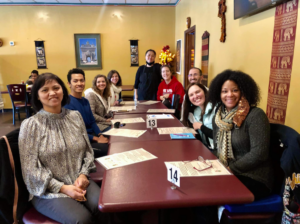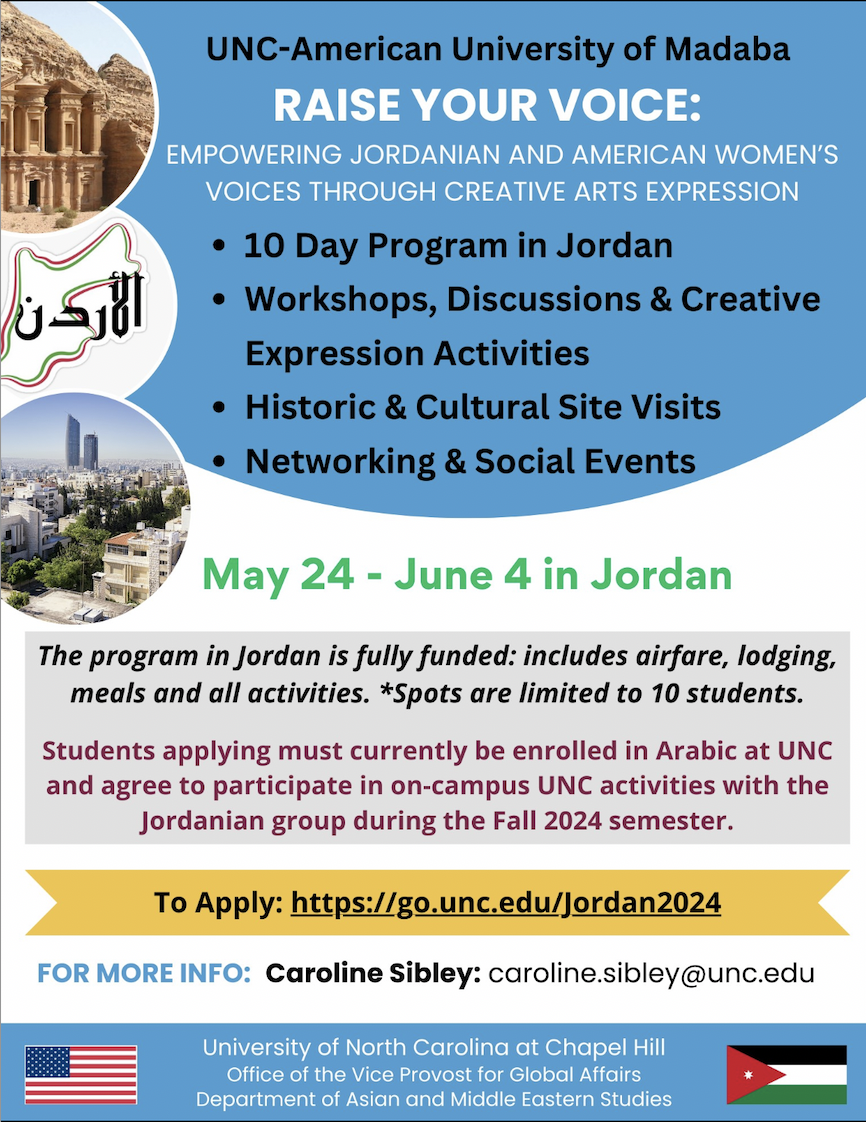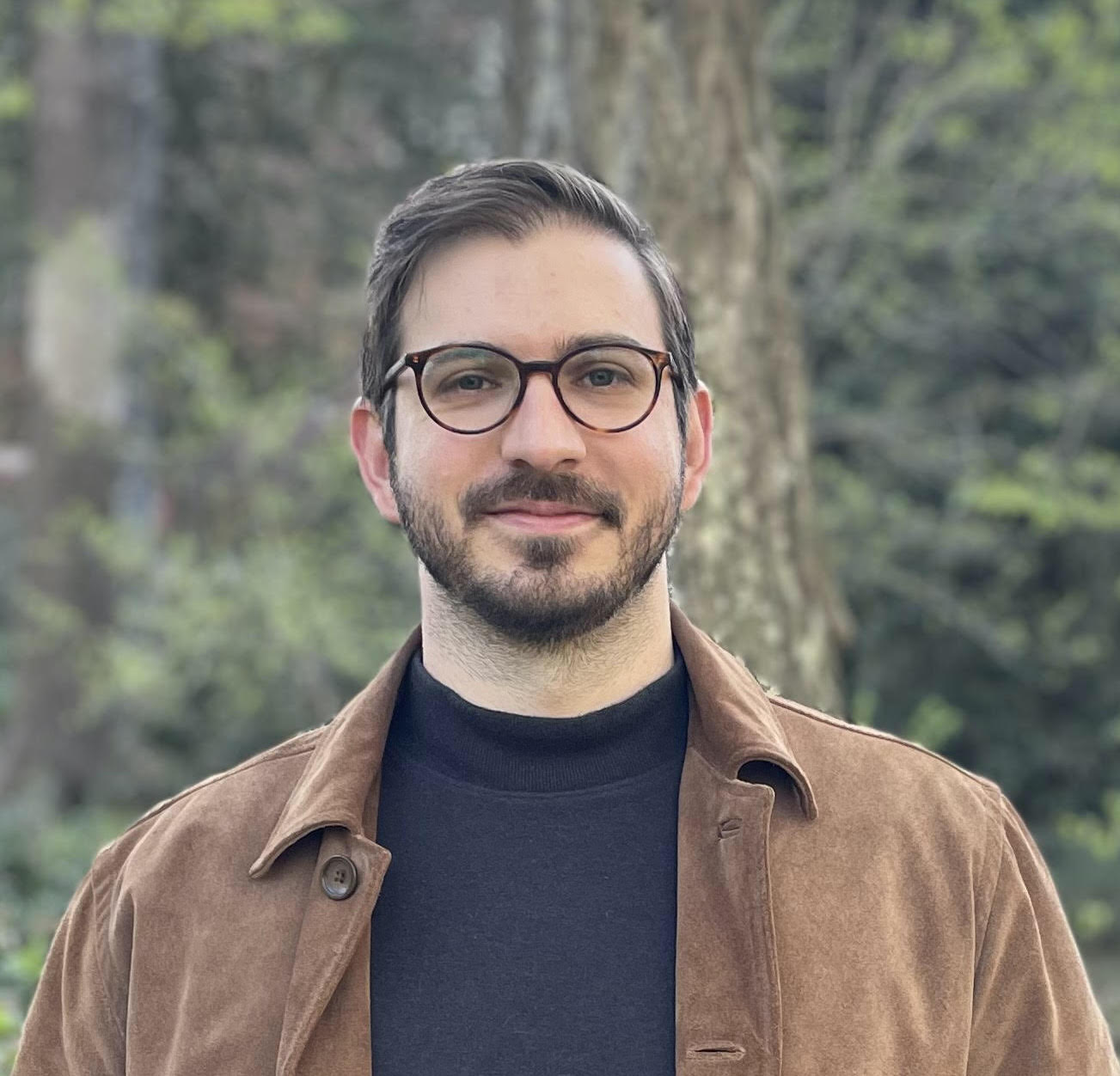Food, water, and sustainability are crucial issues around the world—and right here in North Carolina. This fall, the UNC-Duke Area Studies Centers and the North Carolina Department of Public Instruction (NCDPI) provided teacher education on these vital and interconnected issues in celebration of International Education Week (IEW). Held annually in November, IEW is recognized by the US Departments of State and Education as a way to celebrate the benefits of international education worldwide. From November 15-20, 2021, a total of 56 educators attended five virtual webinars, with teachers from traditionally underserved counties in western North Carolina attending an in-person workshop that rounded out the week.
The Russian Flagship Program & Center for Slavic, Eurasian, and East European Studies kicked off the week with “From the Siberian Steppe to St. Petersburg: Environmental Issues and Activism in Russia.” This session featured journalist Angelina Davydova discussing Russian environmental challenges, climate policies, and the societal response to both. As one participant said, the audience learned about “the breadth and multilayered nature of environmental issues facing Russia,” including water and air pollution, declining biodiversity, and lack of voice for indigenous people for land and resources. The Center for European Studies invited Dr. Cristina Carrasco, UNC Department of Romance Studies to discuss the role of red wine, jamón serrano, and olive oil in Spanish food culture and sustainability practices. Her presentation, entitled “Grape, Olive, Pig: Food Culture and Identity in Spain,” included a cooking demonstration for the teachers tuning in. Attendees expressed positive feedback regarding the interactive nature of the cooking activity.
In a session hosted by the African Studies Center, Dr. Amy Cooke of the UNC Environment, Ecology, and Energy Program presented “From Cattle and Three Stone Fires to Instant Pots: Food, Water, and Sustainability in East Africa,” a talk exploring challenges of fresh water and food production in East Africa. In a session on the Middle East, Dr. Sarah Shields of UNC’s History department joined the Duke-UNC Consortium for Middle Eastern Studies for “Water in the Middle East: Significance, Survival, and Sustainability.” Participants reported learning that “water is a powerful resource” and that “the rest of the world could learn from the Middle East, as everyone will be facing water issues in the future.”
Lastly, Ryan Ludwig of Counter Culture Coffee and the UNC-Duke Consortium in Latin American and Caribbean Studies collaborated to present “Cup of Green: Sustainable Coffee Production in Latin America” on Friday evening. The session examined the importance and production of coffee in Latin America, and how roasters in the U.S. and Latin America can play a role in environmental and social sustainability.

Workshop attendees at the Pho Lao restaurant in Morganton, NC.
Collaboration between the Area Studies Centers and NCDPI has made International Education Week in North Carolina a perennial success. NC DPI provides continuing education units for teachers who join—including opportunities to earn additional hours for designing further materials based on their learning—and the Duke-UNC Area Studies Centers ensure programming that is both expert and accessible. This collaboration serves North Carolina educators with diverse perspectives on global issues.
Five of the UNC-Duke Area Studies Centers are distinguished as National Resource Centers, supported by Title VI grants from the U.S. Department of Education to conduct outreach in area studies and world languages to teachers and schools.
By R.L. Thompson, UNC ‘25





